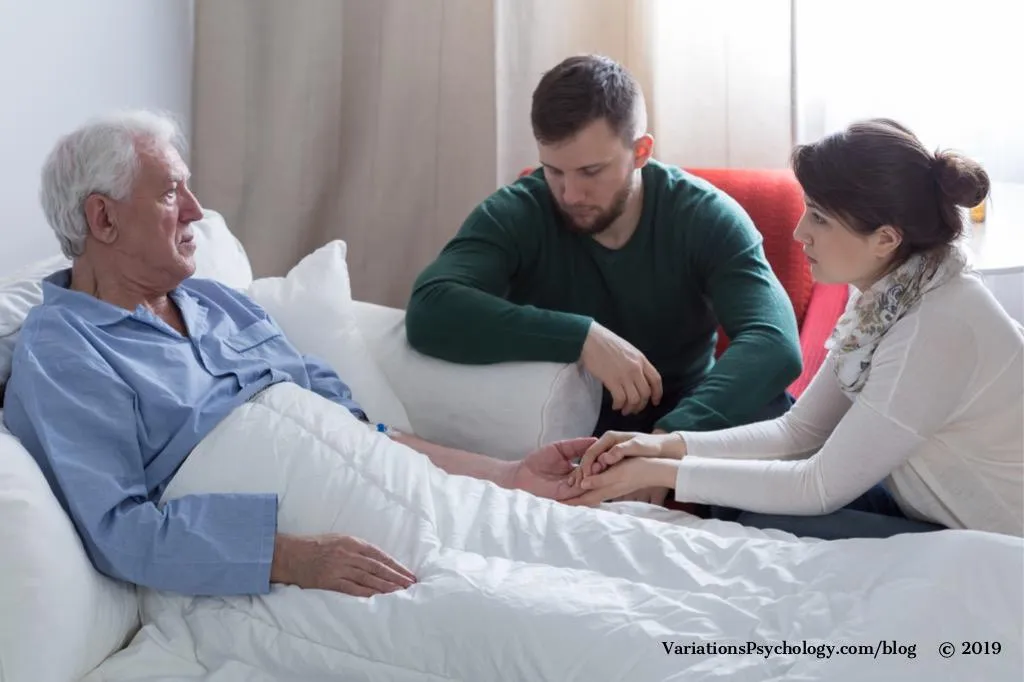
Caregiver Guilt and Resentment: When Bedsores Run Deeper Than Skin
It started with a phone call.
“Dad has a pressure sore. They’re saying it’s bad. Down to the bone.”
Melissa felt her stomach lurch, not only from the gravity of the diagnosis but from what it signaled. She wasn’t the sibling who lived nearby. She wasn’t managing daily check-ins, doctor visits, or keeping track of bed turns and skin checks.
That job had quietly fallen to her older sister, who was now, unmistakably, exhausted, angry, and done being polite about it.
Melissa’s chest tightened with guilt. But along with it, another feeling crept in: resentment.
Why hadn’t anyone told her things were getting this bad? Why was she expected to jump in now and fix everything?
When Care Is Uneven, So Are the Emotions
A bedsore isn’t just a medical crisis; it’s often a flashpoint for everything a family hasn’t been saying.
Sometimes, it’s the moment where long-simmering tensions boil over. Accusations fly. Old patterns reemerge. The question isn’t just What happened to Dad? But who let this happen?
These wounds don’t form overnight. They creep in over time, when routines fray, when parents resist help, when caregiving becomes an unspoken sacrifice. But the emotional aftermath? That can be swift and brutal.
The hands-on caregiver feels abandoned. The distant sibling feels ambushed. Everyone feels defensive. Because deep down, most of us want to believe: I’m doing the best I can.
Guilt and Blame: Two Sides of the Same Wound
Guilt says, “I should have done more.”
Blame says, “You didn’t do enough.”
Often, both echo in the same room, loud and overlapping. The sibling doing the daily grind feels overlooked. Their labor invisible. The one on the outside feels judged, even if no one says a word.
This emotional tug-of-war breeds resentment. Words become weapons. Roles from childhood reappear. And instead of uniting around the loved one in need, the family fragments under the weight of hurt.
But the wound on your loved one’s body? It’s only part of the story.
The rest is about roles never discussed, expectations never voiced, and history never healed.
How Families Can Begin to Heal (While Still Handling the Crisis)
If you’re in the middle of this storm, breathe. You’re not broken. You’re human. And healing is possible.
Here are three small steps that can make a big difference:
Name what’s really going on. Be honest: “Dad has a serious wound, and it’s surfaced some painful feelings. We need to talk about both.”
Recognize the imbalance. Acknowledge the one doing most of the care—and the one who feels left out. Even different roles can carry equal emotional weight.
Ask for teamwork, not blame. Instead of “Why didn’t you…,” try “What can we do now, together?”
When Bedsores Run Deeper Than Skin
This isn’t just about a medical diagnosis. It’s about how care reshapes families, reveals fractures, and—if handled with grace—can even lead to deeper understanding.
But sometimes, families can’t talk through the hurt alone. That’s okay. Sometimes, You Need a Referee Not Just a Plan
That’s where I come in.
My Family Strategy Calls offer a neutral, expert-led space to sort through the emotions, the logistics, and the plan. We help families move from blame to blueprint.
➡️ Schedule a Family Strategy Call
One Last Thing…
If you were the one who noticed the wound, made the call, or raised the alarm, you did the brave thing.
If you’re just now finding out and feel a mix of shock, shame, or sadness, you’re still part of the healing.
Families aren’t perfect. But they can heal. And sometimes, it starts with a single honest conversation.
